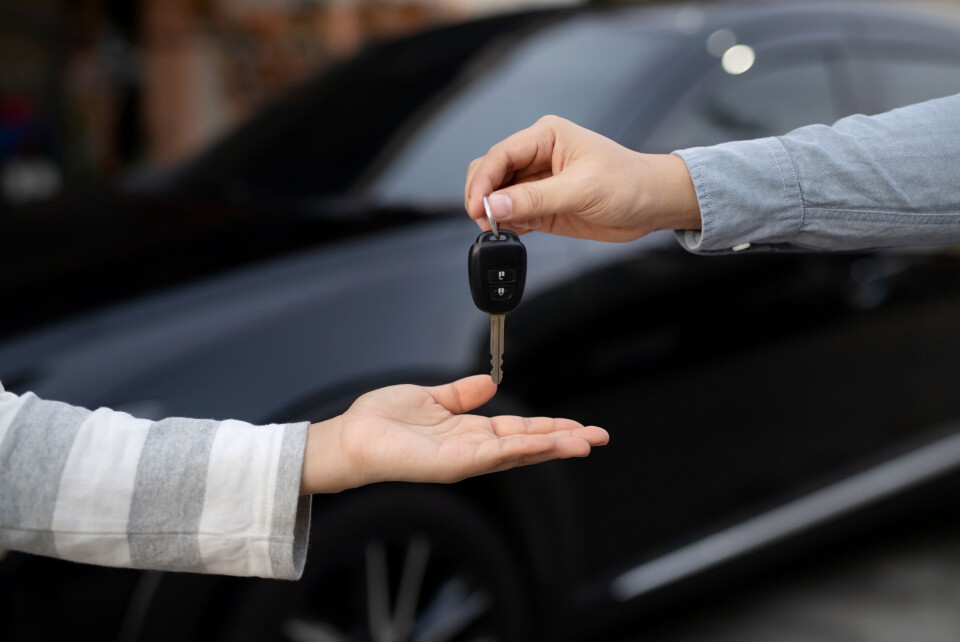-
Alps avalanche risk remains high and 1,000 homes without power after heavy snow
Rail and road traffic disrupted but confinement order lifted for residents of Tignes in Savoie
-
Flights to and from France not expected to be affected by Gatwick Easter strike
Travellers are still advised to check their flight details this weekend
-
Residents ordered to stay home due to high risk of avalanche in French Alps
One person has been injured in an avalanche in Val Thorens, while thousands of homes are without power
Why now is the best time to sell a second-hand car in France
Fewer cars being built is driving increased demand for second-hand models, with prices for newer second-hand cars almost equivalent to new vehicle costs

Second-hand cars that are less than six months old are selling at the same price as new cars in France in some cases, as demand soars for cars due to a lack of semiconductor materials.
In September 2021, a record 3.7 second-hand cars were sold for every new car registered in France.
This comes even though sales of cars in general for the month were 11.6% lower than in September 2020, according to figures from online car sales platform Autoscout24.
Director of Autoscout24, Vincent Hancart, told BFMTV that sales were unusually high in September 2020 due to the health crisis, after many car sales outlets were forced to close for long periods.
Sales of second-hand cars in September 2021 were up 5.7% compared with September 2019, he added.
This is even more surprising, he said, given that “people were returning from holidays, and traditionally it’s a calm month, with consumers spending on the return to school and work [rather than on cars]”.
The current demand means that instances of newer second-hand cars coming on to the market are at an all-time low, as these are the most popular models among buyers.
As a result, high demand and limited stocks are having a knock-on effect on slightly older but still relatively new, second-hand cars. Prices for cars that are two-to-five years old are now up by 28%.
How long will demand for second-hand cars last?
The market for second-hand cars should remain high “for the coming months,” Mr Hancart said.
CEO of market experts Autoways, Eric Champarnaud agreed, telling BFMTV that less availability would keep prices high.
He said: “The market for second-hand cars will start to weaken and will follow the same path as the market for new cars.
“At the end of last year there were still around 500,000 units in stock, but by August we were at 400,000 units, a decrease of 20%.”
Data from Autoways shows that the average price paid for a second-hand vehicle in Ile-de-France had risen to nearly €20,000, a rise of 4.1% since the start of the year.
In Brittany, prices have risen by 7.7% since January, with average prices of €16,659.
What are the benefits of buying a second-hand car?
-
Prices are still cheaper than for new cars. Factors such as the condition of the car and the number of kilometres it has done can knock money off the overall price, but buyers should be careful to check a second-hand car fully before purchase to make sure it works well.
-
Buyers lose less money on the value of the car. As soon as you drive a new car out of the showroom it is no longer new, and immediately loses 20-25% of its value. It can also continue to lose value during the first years of usage when a new model is released. Second-hand cars also lose value over time, but more gradually.
-
More information about the car’s performance is available when you buy a second-hand car as it has already been tested in different environments. While new cars arrive in mint condition, this could mean some surprises in practice if parts wear out quicker than expected or it does not perform as expected in certain conditions.
-
Buying a second-hand car is environmentally friendly as it extends the life of the vehicle and keeps non-recyclable parts in use for longer.
Related stories
French government app ‘Simplimmat’ cuts paperwork on buying a used car
























